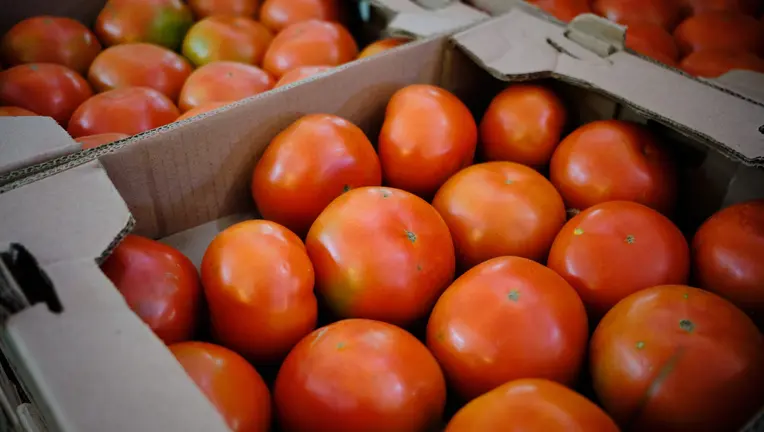US Imposes 17% Tariff on Mexican Tomato Imports Amid Trump Tariff Policies

The U.S. government has implemented a 17% import duty on most fresh tomatoes from Mexico, a move aimed at bolstering the domestic tomato industry. This decision follows the collapse of negotiations with Mexican officials to establish a new agreement to prevent such tariffs. With Mexico currently supplying approximately 70% of the U.S. tomato market, the new duty is expected to increase prices for consumers while providing support to American growers.
Impact on Domestic Tomato Industry
The introduction of the 17% import duty is seen as a significant step to protect American tomato farmers. Robert Guenther, executive vice president of the Florida Tomato Exchange, hailed the tariff as a major victory for U.S. agriculture. The duty effectively ends the 2019 tomato suspension agreement, which had allowed Mexican tomatoes to enter the U.S. market under specific pricing rules to prevent accusations of dumping. The U.S. Commerce Department stated that the agreement was terminated due to numerous complaints from American producers who felt they could not compete with lower-priced Mexican imports. Commerce Secretary Howard Lutnick emphasized the need to address unfair trade practices that have adversely affected U.S. farmers.
Consumer Concerns and Price Increases
Critics of the new tariff warn that it will lead to higher prices for consumers and a reduction in the variety of tomatoes available in the market. Lance Jungmeyer, president of the Fresh Produce Association of the Americas, expressed concern that American consumers would face a “tomato tax,” resulting in fewer choices for popular varieties such as tomatoes on the vine and grape tomatoes. Agribusiness experts predict that retail tomato prices could rise by approximately 8.5%, with some regions experiencing increases as high as 10%. This price hike could significantly impact consumers who rely on affordable fresh produce.
Potential Economic Ramifications
Business groups have raised alarms about the broader economic implications of the tariff. In a letter to the Commerce Department, the U.S. Chamber of Commerce and 30 other organizations cautioned that the decision could provoke retaliatory measures from trade partners, potentially harming industries beyond tomatoes. The letter highlighted concerns about the timing of this move, given the existing trade uncertainties that businesses are already navigating. Additionally, state leaders, including Texas Governor Greg Abbott and Arizona Governor Katie Hobbs, have voiced their apprehensions, urging the federal government to reconsider the decision to protect local economies reliant on tomato imports.
Alignment with Broader Trade Policies
This tariff aligns with the broader trade strategy of the U.S. government, reflecting a more protectionist approach under President Donald Trump. The timing of this announcement coincides with a separate 30% base tariff on goods from Mexico and the European Union. As the U.S. navigates complex trade relationships, the implications of this new duty on tomatoes will unfold in the coming months, affecting both consumers and producers in the agricultural sector.
Observer Voice is the one stop site for National, International news, Sports, Editor’s Choice, Art/culture contents, Quotes and much more. We also cover historical contents. Historical contents includes World History, Indian History, and what happened today. The website also covers Entertainment across the India and World.
Follow Us on Twitter, Instagram, Facebook, & LinkedIn

